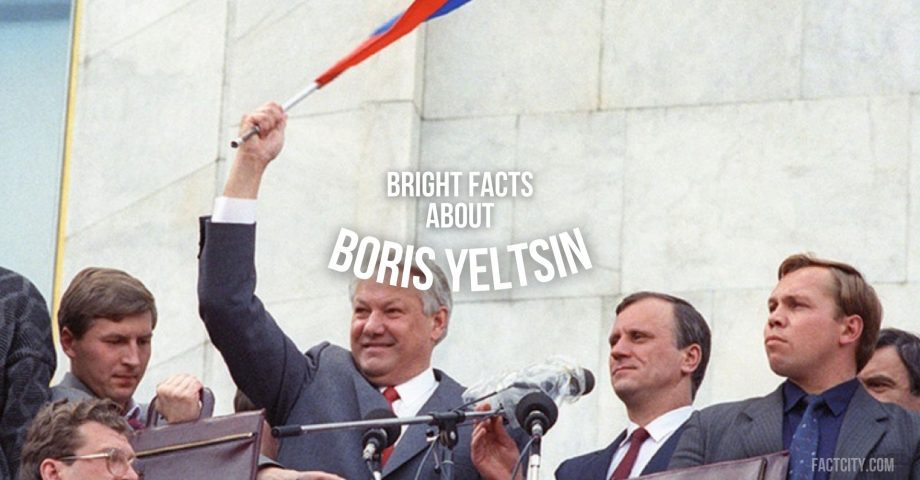Anyone familiar with Russian political and social history will recognise Boris Yeltsin. He served as leader of the country between 1991 and 2000, meaning he was the figurehead for the country not only after the fall of the Soviet Union but also for the vast majority of the 1990s.
Yeltsin helped to move Russia in a new direction following Mikhail Gorbachev’s resignation and the end of the Cold War. After his resignation in 2000, however, Vladimir Putin began to take control of the country and its various global decisions.
That said, we shouldn’t remember Yeltsin purely as the “in-between” President who bridged Gorbachev and Putin. So, in this fact file, we’re going to take a close look at his legacy, what he stood for, and the changes he made in the former USSR heading toward 2000.
Here are some interesting facts about Boris Yeltsin you’re going to want to remember – for the next quiz night or otherwise!
1. Yeltsin and Gorbachev knew each other well.
Boris Yeltsin and his predecessor, former USSR leader Mikhail Gorbachev, met several years prior to the latter’s resignation while working alongside each other in regional politics. In fact, Gorbachev personally promoted Yeltsin to the country’s Politburo.
From here, Yeltsin would become the mayor of Moscow – but, reportedly, proved frustrating for Gorbachev to work with as they came to blows over reforms. Unfortunately for Yeltsin, these events would spiral toward his resignation from the Politburo.
2. Yeltsin was a member of the Communist Party from the early 1960s.
Boris Yeltsin started his political career back in 1961, having previously worked in construction after attending Urals Polytechnic.
However, he wouldn’t start to work in the Party on a full-time basis until toward the end of the decade, eventually becoming Sverdlovsk’s oblast first secretary in 1976.
3. Despite communist affiliations, Yeltsin believed strongly in democracy.
Many of Yeltsin’s complaints regarding Gorbachev’s time in power heading the USSR revolved around how slowly it was taking the leader to reform the Soviet Union. Specifically, Yeltsin was an open believer in democracy, which also proved popular with many voters.
This helped him to build a significant following, enough to run for a seat in the USSR Congress of People’s Deputies. He did this on the back of his resignation as Moscow mayor, making his election in the Congress something of a meteoric comeback!
In fact, Yeltsin was Russia’s first-ever leader elected via the popular vote!
4. He was something of a prankster in his younger days.
Yeltsin had a keen sense of humour and, like many of us, he got up to a few tricks when he was younger. However, many of us probably didn’t play around with grenades!
Yes – Yeltsin apparently lined up a prank of sorts involving a live grenade – which backfired spectacularly. As a result of this risky schoolyard manoeuver, Yeltsin blew off the index finger and thumb on his left hand – how’s that for a reminder to be careful?
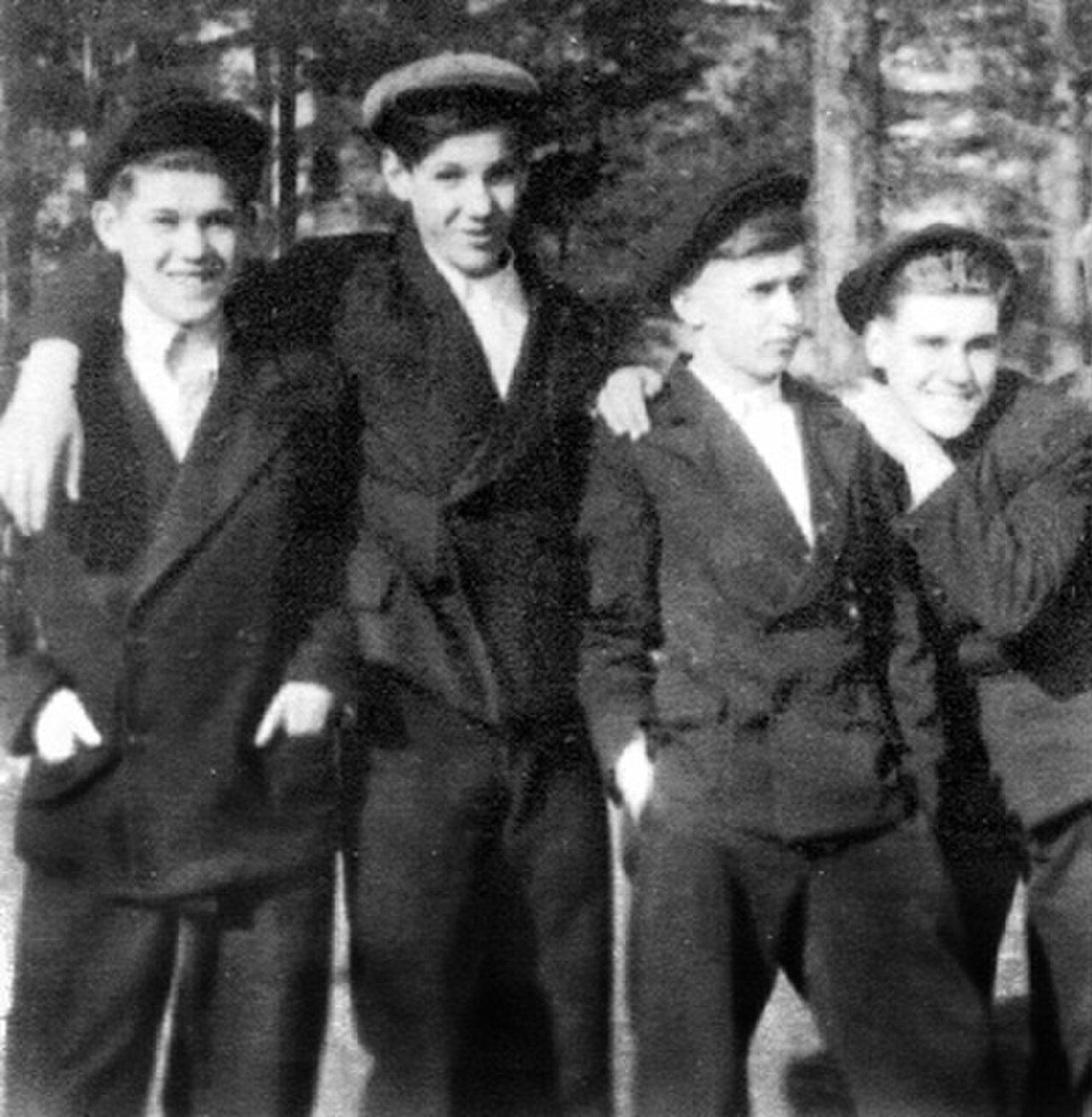
5. Yeltsin became a people’s hero amid a major coup attempt.
As mentioned, Yeltsin quickly built popularity among the people of Russia for his reformation ideas – and, as President of the country, he made a bold stand to personally defend himself from communist coup leaders.
Specifically, Yeltsin decided to mount a plotter’s tank to speak directly to the crowd of would-be overthrowers. Specifically, the crowd was angry about Gorbachev’s reforms.
In a stunning move, Yeltsin mounting the tank and rousing the crowd elevated him to national hero status – especially because the coup soon failed, and he stayed in charge.
6. Yeltsin fought back against the Party he once stood with.
Yes, believe it or not, part of Boris Yeltsin’s commitments to reforms within Russia included fighting back against the people he once stood with in the Communist Party.
The President’s ongoing reformation of the country led to bold steps in restructuring Russia as many people knew it, effectively dismantling many of its connections with previous communist ideals. This would lead to fervent debates, though millions believed in Yeltsin’s plans.
7. He was instrumental in providing “shock therapy” to Russia’s economy.
Some of Yeltsin’s economic reforms were so dramatic and radical that they became known collectively as his economic “shock therapy!” Yeltsin believed in moving Russia away from a centralized economy toward a system based around the free market.
However, while bold, this plan didn’t go so well in practice. In fact, it led to an economic downturn for Russia in many ways. Yeltsin’s bold financial moves would broaden the wealth gap, cause social unrest, and even boost inflation, making poverty worse across the nation.
8. Yeltsin believed in building ties with the West.
After decades of Cold War, and following the turbulence of the 1980s relationship between the US and Russia, Boris Yeltsin sought to try and build new alliances in the West. He was deeply interested in helping to bring Russia onto the global stage.
Eye-opening steps taken by the Russian premier included, for example, signing treaties to agree to reduce nuclear arms held in stockpiles. Regrettably, however, nuclear arms still exist in worrying numbers on both sides of the globe.
9. Many are divided on Yeltsin’s time as leader of Russia.
Yeltsin remains a controversial figure long after his death. His emergence as President of Russia was indicative of the country moving in a more democratic direction, though many people felt his economic policies were poorly implemented – and, as history tells us, the Russian economy suffered dramatically.
That said, his reforms were seen as immensely progressive, and helped to bring Russia out of its shell and onto the global stage. Unfortunately, following Yeltsin’s tenure, the country would travel in a different direction.
10. The final days of Yeltsin’s Presidency were fairly dramatic.
Yeltsin’s time in office was a dramatic one, even if it was celebrated for its reforms and breaking away from communist ideals. As it happened, the President became increasingly unpopular toward the end of the 90s, with his approval rating dropping as low as 2%!
Beyond this, Yeltsin’s ability to lead and run the country came under scrutiny further as he continued to clear house – removing ministers from his control frequently heading up to 2000.
By New Year’s Eve, 1999, Yeltsin finally resigned himself – leaving one Vladimir Putin to take the reins.
11. The Yeltsin family came under scrutiny from Josef Stalin.
Josef Stalin, leader of Russia amid pre-World War II chaos, infamously “purged” people – and, among them, Boris Yeltsin’s family were exiled and forced into a farm unit known as a kolkhoz. This meant that any land they’d accrued was taken by the state.
What kick-started this was that Ignatii Yeltsin, grandfather of Boris, faced accusations of being a “wealthy peasant” – which led the oppressive regime under Stalin to take control of the family assets.
12. Yeltsin was influenced by anti-communist litreature over time.
Boris Yeltsin was, for all intents and purposes, a true communist and a believer in the ideology when he first joined the Party in the 1960s. However, over time, he believed their regime to be totalitarian – and he started to broaden his mind.
Specifically, he would read about the atrocious conditions of the Russian Gulags during his time in the Party, consuming litreature such as Aleksandr Solzhenitsyn’s “The Gulag Archipelago.”
Ever the one to make bold moves, this book was outright banned in the communist regime – meaning, yet again, Yeltsin was intentionally working against the grain. It served him well, for a time!
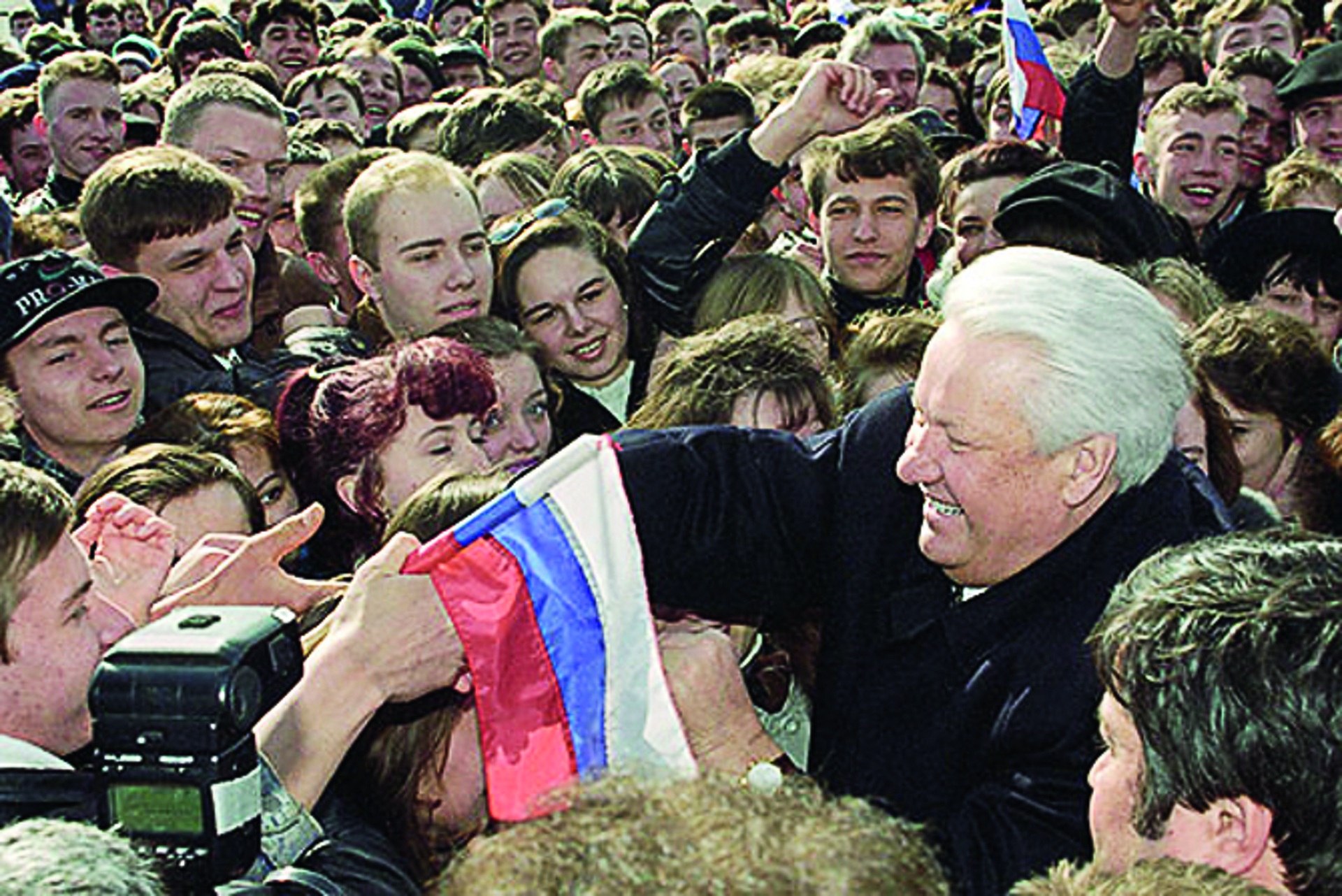
13. He was a figurehead for perestroika and glasnost.
The perestroika movement within the Communist Party believed in greater transparency and decentralization – referred to as glasnost – which Yeltsin soon became a figurehead for. These reformation ideals would come to prominence through none other than Mikhail Gorbachev, though Yeltsin would push for reforms throughout his ascent through office.
14. The “bear hug” helped to heal US relations.
In one of the most iconic moments in 90s world politics, Boris Yeltsin gave then-US President Bill Clinton a surprise bear hug as he set foot on American soil.
This became a highly memorable moment – as many felt it helped to symbolize improving relations between the US and Russia, following decades of iciness.
15. Yeltsin sent troops into Chechnya against the approval of many.
In a move that many continue to see as a low point for Yeltsin’s Presidency, he decided to send Russian troops to suppress rebels in the seceded state of Chechnya in December 1994.
This move proved unsuccessful in the long run for Russia, with Yeltsin’s forces not completely able to fight back against rebellion. It played another role in his growing unpopularity with Russian people heading into his second term as President.
16. He staged an impressive comeback to win a second term.
Yeltsin’s economic reforms and the Chechnya war proved highly unpopular, but he would make surprise gains against challenging communists by 1996.
This was all against the backdrop of the President’s ailing health, as he continued to suffer heart problems while campaigning for a second run in charge of the country.
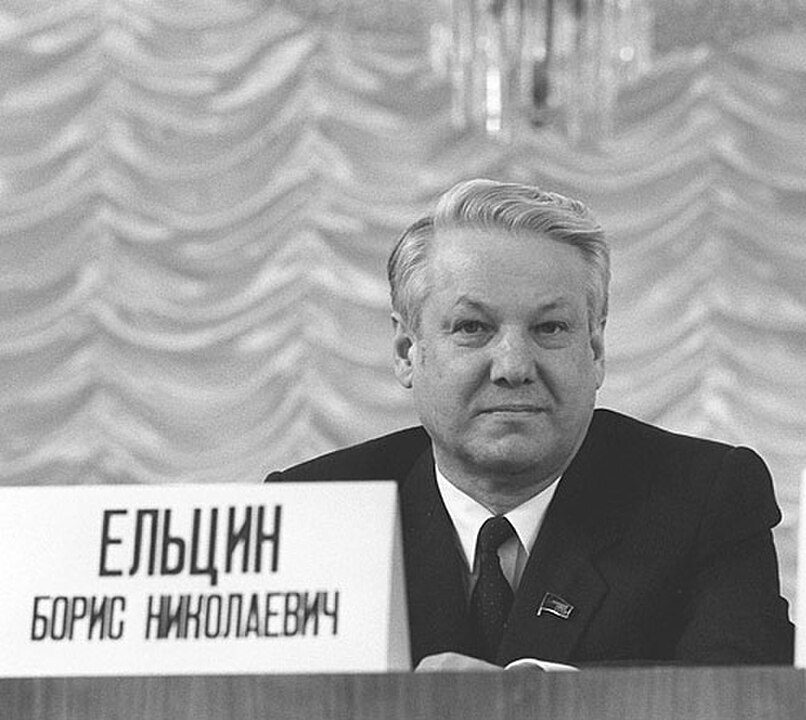
17. He had infamous alcohol problems.
Boris Yeltsin was something of an infamous figure on the global stage for often odd and erratic displays. For example, he once played spoons on the head of Kyrgyzstan’s President, Askar Akayev!
It’s thought many of his strange episodes and even erratic political decisions arose through his alcoholism. For one, it’s thought that he’d effectively agreed to the end of the Soviet Union after several hours of drink-fuelled negotiations. That’s one way of getting treaties and documents sorted, at least!
18. Yeltsin faced impeachment demands late into his term.
Following ongoing controversies, particularly stemming from his work in helping to reform Russia (accused by some of having “broken up” the Soviet Union), Yeltsin would face calls for impeachment from the State Duma.
However, this attempt would prove unsuccessful, as the drive didn’t collect enough votes to pass the impeachment through. This meant Yeltsin stayed in charge.
That said, it wouldn’t be long before Yeltsin stepped down of his own accord, resigning to the shock of many at the end of the decade, paving the way for Vladimir Putin.
19. It’s thought nuclear war almost started under Yeltsin.
For all Yeltsin was a reformer of the communist style of government, and though he wanted to build bridges with other territories around the world, believe it or not – Russia was extremely close to setting off a nuclear war in 1995.
However, this wasn’t by design. It was, in fact, as a result of Russian forces reacting to a rocket launch close by, which the military assumed was a potential threat. It was, in fact, a rocket launched to help study the Northern Lights.
While Yeltsin received the necessary tools and documentation to launch nuclear missiles, no action was taken, as the issue was thankfully cleared up in time – phew!
20. Yeltsin attempted to support his economic reforms through private shares.
One way Boris Yeltsin attempted to break down the communist framework of Russia was to start privatizing various areas of the state and its infrastructure. He undertook this project by way of dismantling anything left over from the USSR.
One such move Yeltsin championed was the use of free vouchers, which allowed everyday citizens to buy into select enterprises with a certain amount of money. His privatization schemes would continue later into the 1990s, though many believe the vouchers would lead to the continued rise of rich oligarchs across the country.
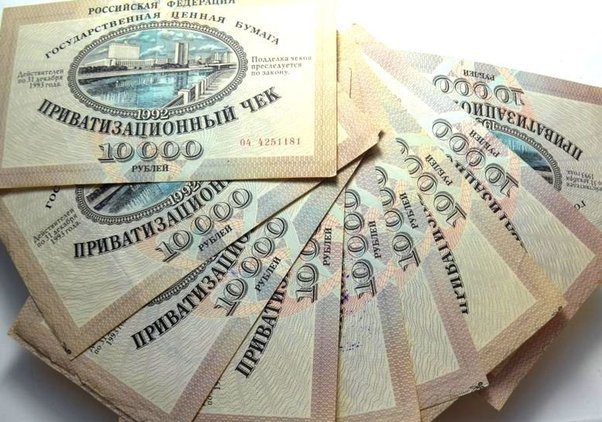
21. Yeltsin was opposed to NATO intervening in the Kosovo War.
The Kosovo War of the late 1990s also resulted in Yeltsin making controversial statements against NATO. He was greatly opposed to the organization taking a military stand against Yugoslavia.
Yeltsin’s opposition grew to the extent that he threatened to deploy Russian troops in the region should NATO continue their offensive.
Yeltsin’s stance on various conflicts drew infamy from some parties, particularly his stance on the Chechnya conflict, which he and US President Bill Clinton famously disagreed on.
22. Despite low polling, no one’s quite sure how the public felt about Yeltsin before he left office.
Infamously, Boris Yeltsin is said to have maintained an approval rating of 2% when he finally resigned in 1999. However, other reports seem to suggest he remained popular with many people across the country.
Before he resigned, Yeltsin apologized publicly to the Russian people, stating that “what seemed simple, proved to be excruciatingly difficult.”
23. He kept a very low profile on the public stage after he left office.
For all Boris Yeltsin was a larger-than-life character, he intentionally kept out of the media spotlight and headlines as much as possible after he bowed out as President in 1999. He made a few statements regarding his successor, Vladimir Putin.
In particular, he echoed statements made by Gorbachev against Putin’s reforms to regional government appointments, believing that his successor was moving the country back away from democracy.
24. Yeltsin died in 2007.
Following years of heart problems, Boris Yeltsin passed away in April 2007, at the age of 76. He broke tradition by being buried via church ceremony, the first of its kind for a Russian premier since Tsarist regimes heading back over a century.
As a result of his passing, Vladimir Putin declared to the nation that his funeral was a day of national mourning to be observed via the closing down of programming and holding flags at half-mast. Gorbachev, too, issued a heartfelt statement regarding the loss of his comrade, referring to his “tragic destiny.”
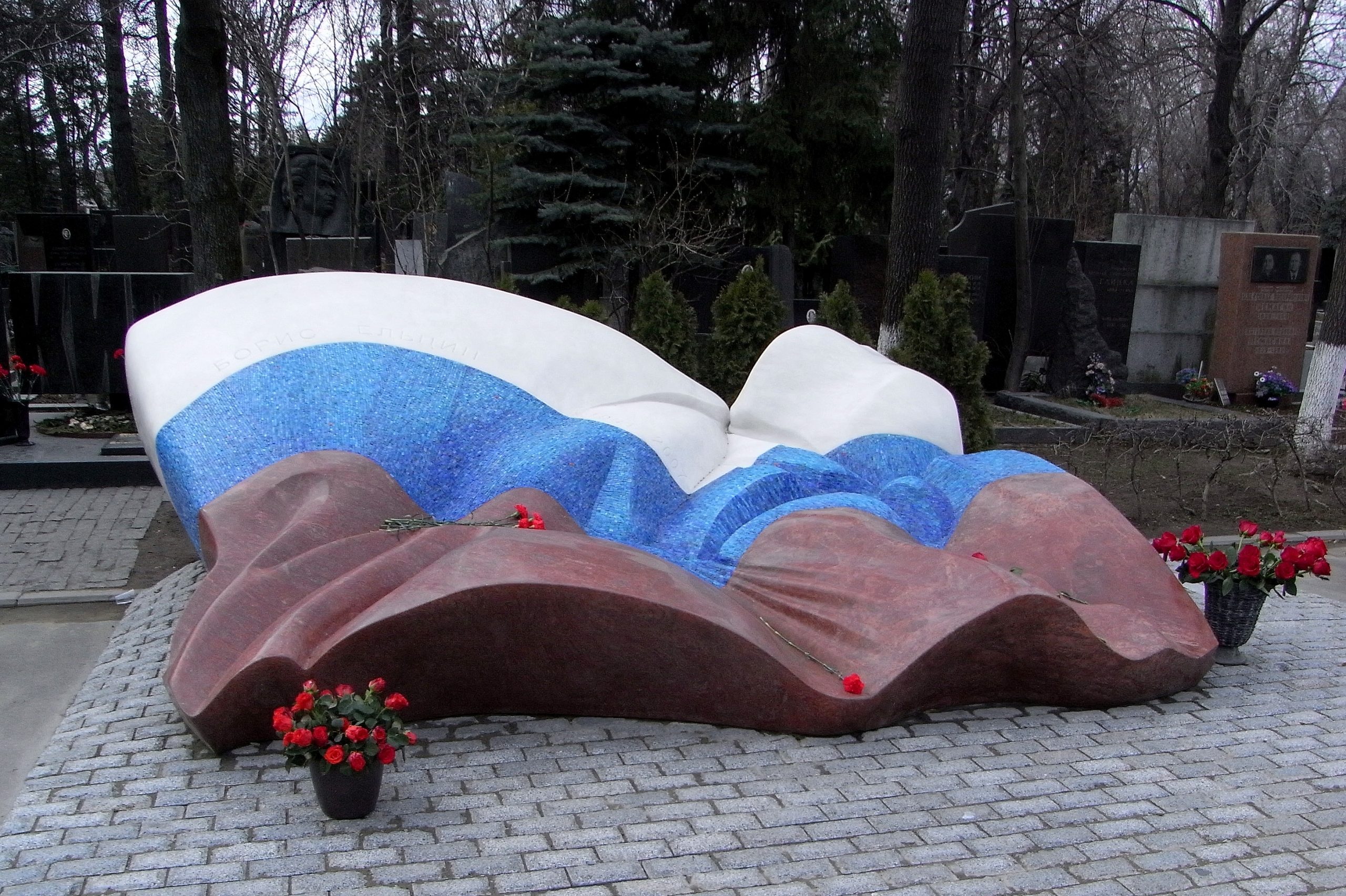
FAQs About Boris Yeltsin
What did Boris Yeltsin do for Russia?
Boris Yeltsin was instrumental in helping to move Russia away from its deep-rooted communist past, bringing in elements of democracy and effectively devolving the Soviet Union. He also launched “shock treatment” economic plans, which included privatizing many of the state’s corporations and assets.
However, many believe that Yeltsin’s time in charge of the country brought about excessive damage to the economy, and that despite having championed democracy, he still wielded a needless amount of power.
What was the cause of Boris Yeltsin’s death?
Following years of heart problems and health issues relating to alcoholism, Boris Yeltsin eventually died in April 2007 as a result of congestive heart failure. He was in hospital for almost two weeks ahead of his passing, and it is thought his eventual death was exacerbated by multiple organ dysfunction.
Why did Boris Yeltsin leave the Communist Party?
Yeltsin left the Communist Party having, over the years, grown disillusioned with their ideals and totalitarian regimes. He wished to create a democratic system where multiple parties could stand for election, a major shift away from the idea that there would be one ruling Party and no exceptions.
Yeltsin would continue to espouse these ideals of democracy throughout his run in charge of Russia, though several people believed he still wielded excessive power for the position he maintained. His legacy is, to say the very least, a complex one!
Do you know any fun facts about Boris Yeltsin? Share them in the comments below!
